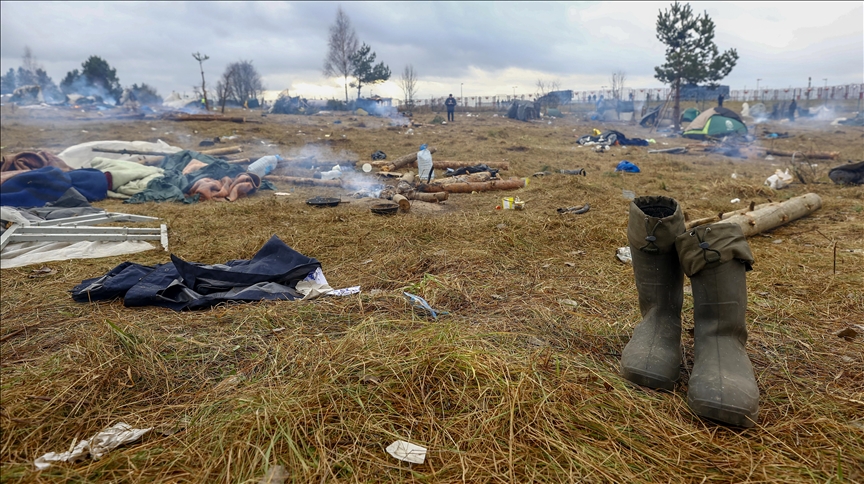Belarus announced Thursday that it has cleared makeshift camps on its border with Poland and moved migrants to a nearby warehouse that the government has converted into a processing center.
In the afternoon, the migrants, who are seeking to emigrate to Europe, began packing their belongings in the forested area and camps they had set up along the border in Belarus' Grodno region.
The families with children and others, who are mostly from Iraq, Syria, Afghanistan, Iran and some other Asian and African countries, left the camp.
With the few remaining migrants leaving in the evening, the area was completely cleared.
The Belarusian State Border Committee announced that since there is no one left in the camps, journalists cannot work in the area but can continue their work at the processing center in the Bruzgi border region where the migrants are now settled.
At the instruction of Belarusian President Aleksandr Lukashenko, medical aid, water and hygiene products were distributed to the migrants.
After spending 10 days in tents in cold weather, migrant groups quickly made their way to the processing center.
In the sheltered area, children played while mothers took care of their infants. There were also those who prayed.
Belarusian authorities are planning to set up a separate enclosed area for groups of migrants that could not enter the center. The presidential aide for the Grodno region, Yury Karayev, and his team personally led the aid activities in the region.
Since August, the European Union countries bordering Belarus -- Lithuania, Latvia and Poland -- have reported a dramatically growing number of irregular crossings.
Over 8,000 people have tried to enter the bloc via the Belarus-EU border so far this year, up sharply from just 150 last year.
According to the EU, Belarus reaches out to potential travelers through seemingly official channels, including diplomatic missions and travel agencies, and invites them to Belarus by offering them visas. They are then allegedly guided to the EU border.
Over the last week, at least 2,000 people, including women and children, have been stuck in the Belarusian-Polish border area in dire conditions.
